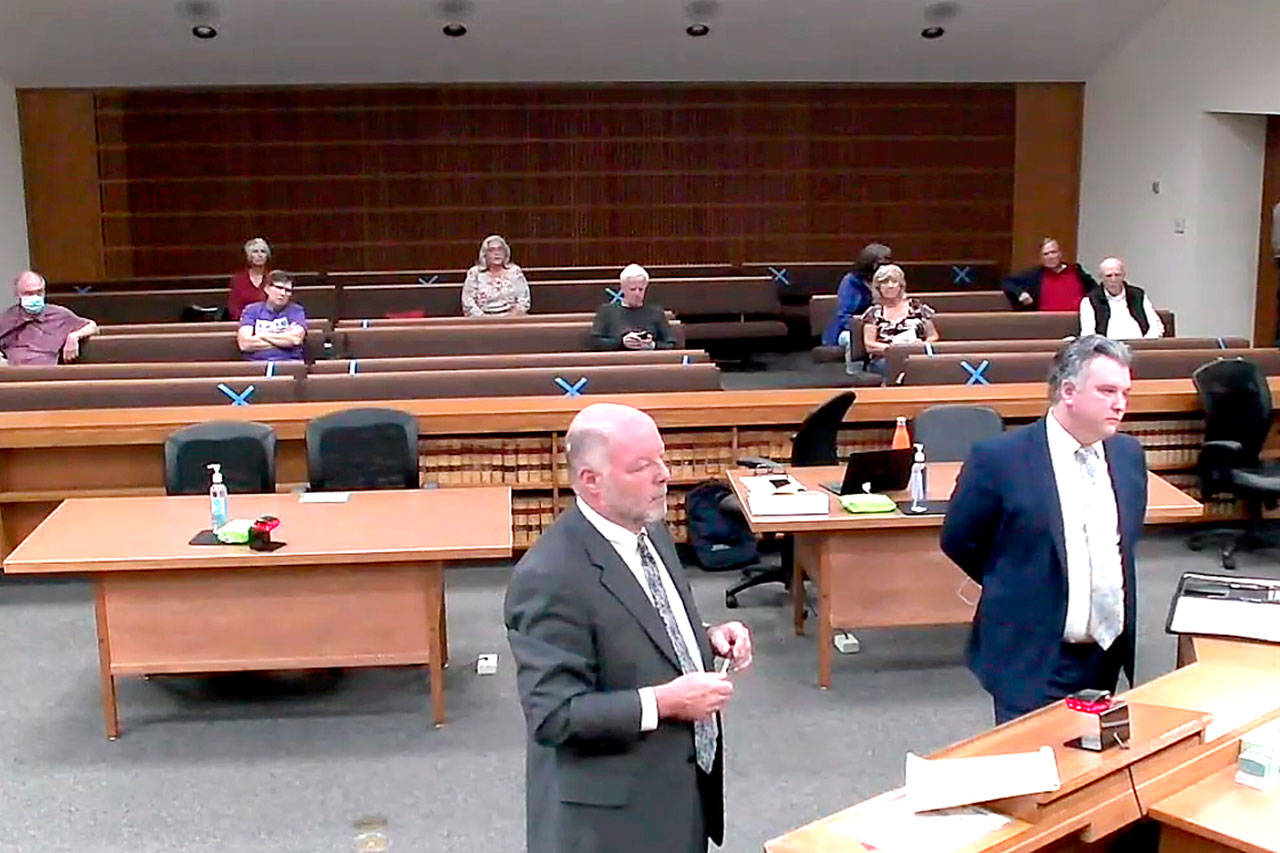A decision is still pending from Judge Brent Basden in Clallam County Superior Court as of Tuesday on whether he will halt or allow the application process for the proposed medication-assisted treatment (MAT) clinic in Sequim to continue.
Basden said at the June 19 hearing he wouldn’t make a decision from the bench because he wanted to consider further the documents submitted just prior to the hearing.
Basden didn’t provide a timeline for his decision on the emergency motion for temporary restraining order and injunction against the City of Sequim’s permit for the proposed 16,806-square-foot medical facility.
Representatives with Save Our Sequim and Jon Gibson, owner of Parkwood Manufactured Housing Community, filed the injunction on May 5, with Basden allowing the Jamestown S’Klallam Tribe attorney Andy Murphy of Miller Nash Graham & Dunn to intervene last Friday for the city during the hearing.
SOS attorney Michael A. Spence of Helsell Fetterman and Gibson’s attorney Michael McLaughlin of McMahon Law Group reiterated their representatives’ stances that they support drug addition treatment but contend the city wrongfully placed the clinic under an A-2 process, where staff approves the project instead of a quasi-judicial, C-2 city council-made decision.
They also say the application should be classified as an “essential public facility” and that the project holds “broad public interest” under city code, among other issues with the proposal.
Sequim’s Director of Community Development Barry Berezowsky approved the MAT application on May 15, leading to the final appeal process that closed on June 5.
Six appeals against the MAT application have been filed, which the city’s hearing examiner Phil Olbrechts could consider if Basden dismisses the injunction.
Spence said they weren’t able to challenge the A-2 versus C-2 decision until a decision was made on the application.
“We are here today to meet that standard and prove we have a legal equitable right. We’re deprived of our statutory right to appeal to the city council,” he said.
Sequim City Attorney Kristina Nelson-Gross said that the plaintiffs haven’t articulated why the motion is an emergency, and that they waited until late in the appeal process to file.
She said the North Olympic Peninsula Builders Association don’t have issues with the permitting process and the plaintiffs haven’t addressed any arguments in the city and tribe’s response.
Murphy said the groups are already appealing the application and that “this is a blatant effort to leapfrog LUPA (Land Use Petition Act).”
He added that the complaints by the plaintiffs are “land use issues and those must be brought before LUPA and cannot be a declaratory ruling.”
“I’m not aware of a single issue that they couldn’t raise in the LUPA process,” Murphy said.
Basden asked the plaintiffs why the hearing examiner isn’t an adequate remedy. Spence said they don’t feel it would be a level playing field and that they feel deference would be given to the city.
McLaughlin said under the C-2 process the city council could take more things into account such as how the community would be impacted.
However, Basden said, “You’re going to the hearing examiner; you’re going to be able to raise every complaint or question or merit defect at that level.”
Nelson-Gross said she doesn’t understand how deference would become involved because “even if this were to go before council (they) would still have to approve it under what the code says.”
“They have neglected every step of the way why the LUPA process isn’t used,” Nelson-Gross said.
Spence said they didn’t purposefully wait to file the injunction but rather they waited until the permit was issued.
“It’s not like you make a decision over night,” he said. “It’s not a huge amount of time.”
He added, “we’re accused of shifting gears. This thing is on the rails. We have tried everything we can. We’re not shifting gears. We’re looking for a neutral forum.”



